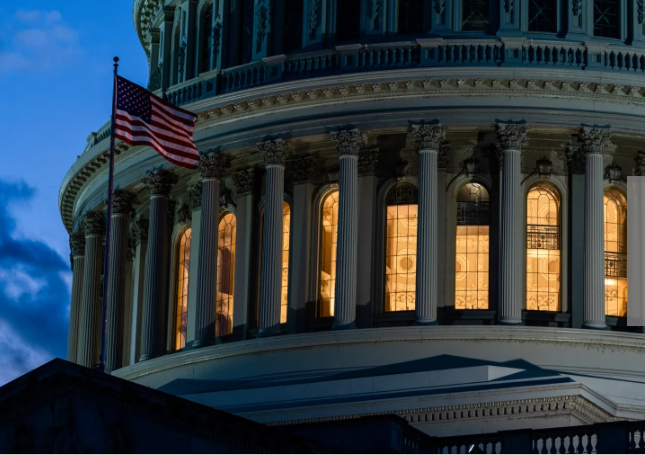While economists don’t expect big near-term shocks if federal agencies go dark, the risks grow the longer a stalemate lasts.
As the deadline for government funding approaches, many wonder what the economic impact of a shutdown will be. A short-term shutdown, lasting a few weeks, may not significantly disrupt the overall U.S. economy, but the consequences are more serious if the impasse extends further. The immediate effects of a shutdown are likely to be furloughs and the suspension of paychecks for hundreds of thousands of federal employees and contractors.
Economists warn that while the initial shock might be minimal, the risks intensify over time. If the shutdown lasts for several weeks, more industries and sectors could feel the pain. For example, there are likely to be delays in the release of critical government data, which could impact decision-making in both private and public sectors. Policymakers could find themselves operating with incomplete information, which could affect their ability to manage ongoing economic issues.
The most recent government shutdown, which lasted for 34 days in 2018-19, caused at least $18 billion in delayed spending, with $3 billion of that amount permanently lost. During that time, the U.S. economy also experienced a loss of $8 billion in GDP, reflecting a 0.2% drop in growth. These figures highlight the broader economic damage that a longer shutdown could cause. The longer the government remains closed, the more difficult it becomes to recover from these losses.
In the case of the current shutdown, analysts are predicting that economic growth will take a hit. The Bipartisan Policy Center has forecast that a prolonged shutdown could reduce GDP growth by an additional $3 billion per week, which could further harm the economy’s recovery from other setbacks. Industries that depend on federal government services, such as defense, healthcare, and research sectors, will likely feel the impact more severely.
Another concern is the potential ripple effect on markets. Investors and businesses thrive on stability and predictability, and the uncertainty caused by a government shutdown could lead to market volatility. Stock prices could fluctuate as the shutdown continues, and consumer confidence could wane if people fear that their jobs or livelihoods are at risk due to prolonged government closures.
It is also important to consider the effects on government programs. With critical services delayed or disrupted, programs like Social Security, unemployment benefits, and public health services could experience delays or gaps in service. For many Americans who rely on these services, a government shutdown could create significant hardships.
Ultimately, the long-term risks of a government shutdown depend on how long Congress remains deadlocked. While a short disruption may not cause a catastrophe, a longer shutdown could have lasting consequences, both financially and politically. As the political battle continues, the public and economists alike will be closely watching for any signs of a resolution.

